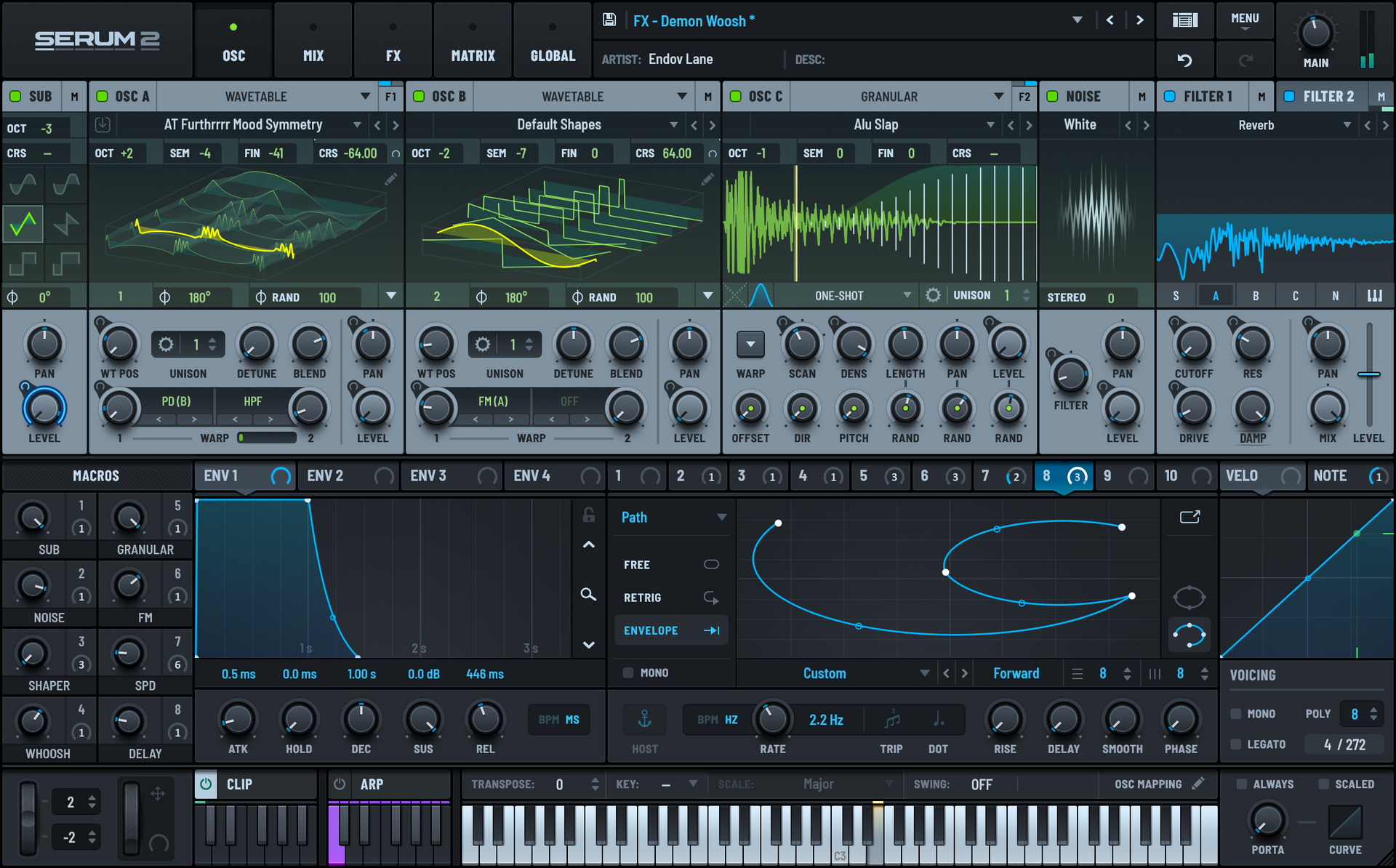How to plan your music career goals successfully
Music is a universal language, with a multitude of genres and styles. Crafting a sustainable music career requires deliberate planning and a clear understanding of your goals. To navigate the music industry's complex maze, a solid blueprint with measurable milestones is paramount. Have you outlined your path to success?

Setting Your Music Industry Goals
To set achievable targets, begin by defining clear, specific long-term objectives that encapsulate your musical ambitions and aspirations. This foundational step guides your career's trajectory.
Articulate intermediate goals that bridge the gap between your current position and your ultimate aim, ensuring each is attainable, time-bound, and serves as a stepping stone. This approach fosters a sense of progression and fulfillment along your artistic journey.
Always align your immediate tasks with your broader goals to maintain focus on the overall career progress you desire.
Identify Your Musical Vision
Clarity of intention fuels your career trajectory; it starts with crystallizing your artistic ethos. Envision the impact you want while honing your unique sound and message.
Your musical vision functions as your compass, guiding decisions and paving the way for strategic career moves. It demands introspection and the courage to aim beyond conventional boundaries—or comfort zones.
Authenticity amplifies your artistic voice, creating resonance in the collective heart of your audience.
A defined musical vision: it streamlines your path, sharpens your focus, and distinguishes you from the cacophony of voices (in a market saturated with talent), compelling the industry to take note of your distinct hue.
Establish Short and Long-Term Objectives
Structuring your career aspirations into tangible goals is essential for mapping a viable path forward. It's about breaking the grand vision into actionable steps.
Identify milestones that signal progress. These benchmarks align with your vision.
Short-term objectives are critical for maintaining momentum, while long-term goals keep you grounded in your ultimate artistic pursuits. Both should be S.M.A.R.T.—Specific, Measurable, Achievable, Relevant, and Time-bound.
Long-term objectives often require short-term sacrifices and disciplined focus. They necessitate foresight and the flexibility to adapt as you gain insight and experience in the evolving landscape of the music industry. Remember, a goal without a plan is merely a wish—tactical foresight turns aspiration into achievement.

Developing a Brand and Image
In the relentless pursuit of a successful music career, carving out a unique brand and image is paramount. As an artist, your brand encapsulates your ethos, artistry, and the distinctive narrative you present to your audience—the amalgamation of your sound, style, and story. Understanding and consistently projecting this identity is not merely about aesthetics; it's an assertion of your values and an invitation to your audience to connect with the world you've created.
To solidify your brand, meticulous attention to the coherence and resonance of your image across all platforms is indispensable. Your visual representations, from album covers to social media, must echo the essence of your musical identity. They should resonate with your target demographic, while remaining authentic to your creative vision. Crafting this congruence is both an art and a science, requiring strategic refinement and passionate creativity.
Crafting Your Unique Artist Identity
Developing a unique artist identity requires introspection and a deep connection to your artistic vision. This personal brand must reflect the complexities and nuances of your music and ideology.
As you sculpt your identity, consider your influences, aspirations, and the emotional resonance of your music. Aim to create a symbiotic relationship between your musical output and visual brand that intricately weaves the fabric of your persona with the notes that you play. Your identity should act as a beacon, illuminating your musical landscape for your audience, laying bare your soul in a form they can see, touch, and feel through every aspect of your presence, from the tone of your interviews to the artwork on your releases.
Furthermore, constructing a persona that stands out in a crowded marketplace demands originality and adherence to your true self. It's vital to balance the raw, unpolished aspects of your character with a polished representation that captivates and endears you to your audience. This blend of authenticity and professionalism will become the hallmark of your artist brand, enabling you to forge a deep, lasting connection with your listeners.
Finally, the continuous evolution of your identity must be nurtured with forethought and precision. As you mature artistically, your brand should be an adaptive narrative that carries your fans along the journey. This perpetual storytelling not only retains the essence of who you are but also encompasses the growth and changes you experience as an artist. Refining this dynamic narrative is critical to maintaining relevance and resonance with both your loyal fan base and potential new listeners, ultimately bolstering your career in a landscape of perpetual motion and transformation.
Leveraging Social Media Presence
A well-orchestrated social media strategy is indispensable for carving out a distinct place in the music industry. Your digital footprint can serve as a powerful extension of your brand, enabling real-time engagement with your audience.
Craft content that resonates with your listeners' interests and lifestyle. A focused approach can foster deeper connections and loyalty.
Your social media accounts should be more than just platforms for announcements; they must embody the aesthetic and ethos of your music. This coherence ensures that every post contributes to a unified narrative of your artistic journey, capturing the nuances of your evolving identity.
To sustain a robust social media presence, it’s crucial to utilize analytics and feedback to adapt your strategy. Engaging content aligned with your artistic vision can drive your music career forward. Remember, on platforms like Instagram and TikTok, a single viral post can significantly enhance your visibility.

Building Professional Skills
In the domain of music production, developing an array of professional skills is instrumental. It's essential to master technical competencies, including audio engineering, mixing, mastering, and music theory. These pillars form the foundation upon which your distinct sound and style will rise. Without proficiency in these areas, your ability to express your musical intentions may fall short, leaving your creative potential unfulfilled.
To supplement your technical skill set, cultivate a nuanced understanding of the music industry landscape. This involves a firm grasp of music business practices, such as copyright laws, publishing, artist management, and branding. Immersing yourself in these facets not only protects your artistic works but enables you to navigate the complexities of the industry more effectively. Knowledge is power, and understanding the business elements of music production is imperative to guide your career trajectory towards success.
Essential Music Business Knowledge
Understanding the intricacies of music copyright is the bedrock of protecting your creative output. Without this knowledge, artistic vulnerabilities multiply, potentially undermining your craft and revenue.
Since the advent of digital distribution, the mechanisms to monetize music have evolved dramatically. Artists must now be adept in navigating streaming platforms, royalties distribution models, and various online monetization strategies to maximize their income.
Furthermore, building a robust network is indispensable in the music industry’s ecosystem. This requires strategic relationships with producers, labels, booking agents, and other musicians. Collaboration and partnerships are not just beneficial; they are integral to sustained growth and visibility in the market.
Awareness of branding and marketing techniques can no longer be relegated to ancillary status. Personal branding—coupled with adept use of social media—can dramatically influence the trajectory of an artist’s career. It’s about constructing a narrative that resonates with both existing and potential audiences.
Lastly, a comprehensive set of strategies for intellectual property management is paramount. A musician versed in this aspect is better equipped to exploit their work in a multitude of markets and platforms, ensuring diversification of income.
Networking Strategies for Musicians
In the music industry, networking is akin to laying the foundation for a building. It's not merely a means to an end; it's the very bedrock on which success is built. It necessitates a deliberate approach, merging professional etiquette with personal charm, to establish a network that sustains and expands your career.
Personal connections can bridge gaps no technology can. Engage with your community both online and offline.
Being present and active at industry events can lead to serendipitous connections. Seek out platforms (conferences, workshops) that facilitate exchange.
Cultivate relationships with respect and sincerity. It's about reciprocal value, not just what you can gain.
Diversify your network by connecting with professionals from different facets of the industry, such as sound engineers, event organizers, and digital marketers. This multidimensional web can offer support and open doors to various opportunities that might otherwise remain inaccessible.
Remember, a robust network is about quality rather than quantity. Focus on fostering meaningful relationships with individuals whose work aligns with your vision. Strategize your approach for longevity, ensuring that the connections you build today continue to bear fruit throughout your music career.
Creating a Realistic Action Plan
Constructing a pragmatic roadmap is imperative to transitioning aspiration into tangible results. Identify short-term milestones anchored in your overarching long-term objectives to substantiate progress.
When crafting your journey, employ pragmatic timelines matched with actionable steps. This bifurcation ensures you're pacing yourself while avoiding common pitfalls, such as burnout or misdirection that come with overambitious scheduling.
The mantra “measure twice, cut once” applies aptly to planning. Metrics and benchmarks are indispensable tools, offering feedback essential to your career trajectory's fine-tuning and recalibration.
Timeline Strategies for Goal Achievement
Crafting a timeline for your music career goals is fundamental to monitoring progress and ensuring tangible outcomes.
- Set Clear Milestones: Establish specific, measurable objectives that contribute towards your overarching goals.
- Allocate Timeframes: Dedicate realistic periods for achieving each milestone, allowing for flexibility as circumstances evolve.
- Assess and Adjust: Regularly review your timeline to evaluate progress and make necessary adjustments to stay on course.
- Incorporate Buffer Periods: Plan for unexpected delays by integrating buffer times, avoiding unnecessary pressure and stress.
- Celebrate Achievements: Recognize when you hit milestones to maintain motivation and positive momentum.
Your timeline is a living document, subject to refinement as your career evolves and new opportunities arise.
Adhering to a structured roadmap paves the way for consistent progression and the avoidance of stagnation or derailment.
Evaluating and Adjusting Goals Regularly
In the dynamic landscape of the music industry, periodic evaluation of one's career goals is crucial for staying relevant and agile.
- Review Progress: At regular intervals, assess your milestones against your initial objectives and the current market conditions.
- Identify Deviations: Pinpoint where you have diverged from your plan and analyze the factors contributing to these discrepancies.
- Realign Goals: Adjust your objectives to better reflect your evolved skillset, industry shifts, and personal aspirations.
- Seek Feedback: Obtain input from peers, mentors, and industry professionals to gain an external perspective on your trajectory.
- Update Strategies: Revise your approach, incorporating new techniques and opportunities that have emerged since your last assessment.
Frequent recalibration ensures that your career path remains viable and your objectives are still ambitious yet attainable.
Adaptability is the cornerstone of enduring success in the music industry, turning potential setbacks into growth opportunities.
ICON Collective was honored to host Lorne Padman as our 2023 Graduation Keynote Speaker. Lorne Padman, an industry veteran and VP at Dim Mak Records, delivered an inspiring keynote speech at the ICON Collective 2023 Graduation ceremony. His speech emphasized the importance of passion, resilience, and continuous learning for aspiring music professionals. Watch the keynote below:



